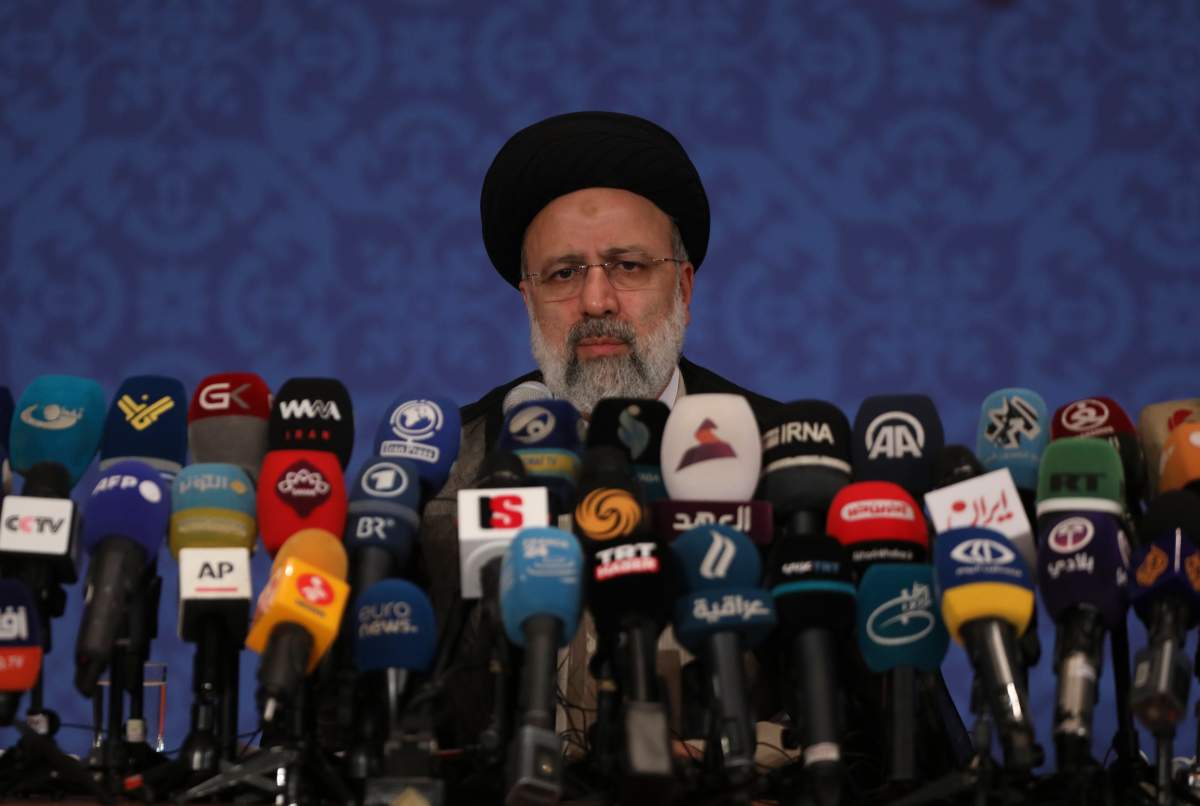American authorities took down a range of Iran’s state-linked news websites they accused of spreading “disinformation” on Tuesday, a U.S. official said, a move that appeared to be a far-reaching crackdown on Iranian media amid heightened tensions between the two countries.

The official, who spoke on condition of anonymity because the case had not yet been officially announced by the American government, said the U.S. had seized roughly three dozen websites, the majority of which are linked to Iranian disinformation efforts.
Iranian state-run news agency IRNA announced the U.S. government seizures of the websites, without providing further information.
The takedowns come as world powers scramble to resurrect Tehran’s tattered 2015 nuclear deal and just days after the election victory of Iran’s hard-line judiciary chief, Ebrahim Raisi. On Monday, Raisi, known for his hostility to the West, staked out a hard-line position in his first news conference. He ruled out the possibilities of meeting with U.S. President Joe Biden or negotiating over Tehran’s ballistic missile program and support for regional militias — concerns the Biden administration wants addressed in future talks.
Relations between Iran and the U.S. have deteriorated for years following then-President Donald Trump’s withdrawal from Tehran’s nuclear deal and return of devastating sanctions on the country. That decision has seen Iran, over time, gradually abandon every limit on uranium enrichment. The country is now enriching uranium to 60 per cent, its highest level ever, though still short of weapons-grade levels.

Get breaking National news
Iran provides support to militant groups in the region, such as Lebanon’s militant Hezbollah and Yemen’s Houthi rebels, as it seeks to wield its influence far afield and counter its foes.

On Tuesday, visiting the addresses of a handful of sites, including Iran state television’s English-language arm Press TV, Yemeni Houthi-run Al-Masirah satellite news channel and Iranian state TV’s Arabic-language channel, Al-Alam, produced a federal notice. It said the websites were seized “as part of law enforcement action” by the U.S. Bureau of Industry and Security, Office of Export Enforcement and the Federal Bureau of Investigation.
The U.S. government also took over the domain name of the news website Palestine Today, which reflects the view points of Gaza-based Islamic militant groups Hamas and Islamic Jihad, redirecting the site to the same takedown notice.
It’s not the first time that the U.S. has seized domain names of sites it accuses of spreading propaganda.
Last October, the Department of Justice announced the takedown of nearly a hundred websites linked to Iran’s powerful Revolutionary Guard. The U.S. said the sites, operating under the guise of genuine news outlets, were waging a “global disinformation campaign” to influence U.S. policy and push Iranian propaganda around the world.
Yemen’s Houthi rebel group announced that its Al-Masirah satellite news channel went offline Tuesday without prior notice. It said the channel would continue in its mission of “confronting the American and Israeli acts of piracy against our nation, by any means.”
Press TV, launched in June 2007, is the state-run Islamic Republic of Iran Broadcasting’s English-language service. There are no private television or radio stations in Iran. Satellite dishes, while widespread, also are illegal. That leaves IRIB with a monopoly on domestic airwaves.
Marzieh Hashemi, a prominent Press TV anchorwoman who, in 2019, was arrested as material witness in an unspecified criminal case and has appeared before a grand jury in Washington, told The Associated Press that the channel was struggling to “figure out the reasons” for the seizure.
While airing in Iran, Press TV focuses predominantly on international affairs through the lens of how leaders in the Islamic Republic see the world. Fierce criticism of British and American foreign policy is common. Since the 1979 Islamic Revolution, IRIB has been in the hands of hard-liners who back Iran’s government.
Press TV has previously run into trouble with Western authorities over its reporting. The Anti-Defamation League has criticized the channel as “one of the world’s leading dispensers of conspiratorial anti-Semitism in English.”







Comments
Want to discuss? Please read our Commenting Policy first.